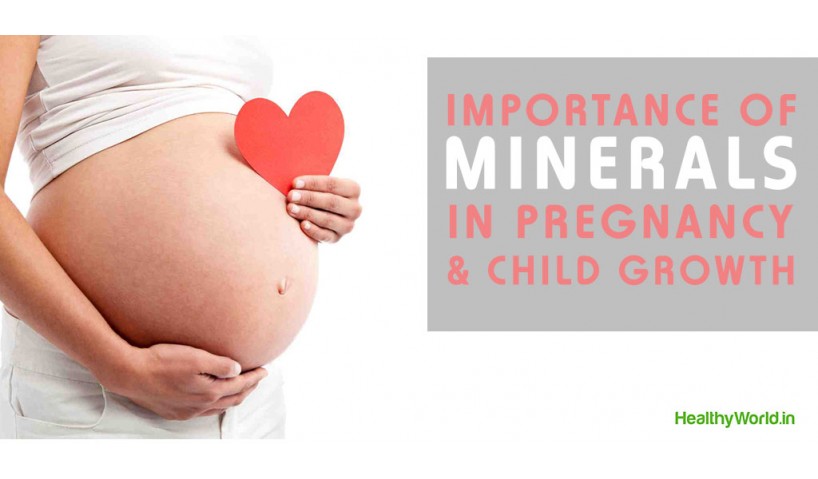
Minerals for Pregnant Women
Minerals, just like vitamins, should be included in the everyday meals of a pregnant woman.
You can take minerals while pregnant but should not exceed the recommendation given by your doctor.
Calcium and phosphorus are the most important minerals, they can help to reduce the strain of pregnancy.
The development of your baby and other changes in your body should be supported with minerals and vitamins.
While you can take multivitamins to support your body, taking natural foods that are rich in minerals and vitamins is the best.
These minerals are essential during pregnancy for your health and that of your fetus.
Macronutrients
- Calcium (Ca)
Calcium is the main building material for bone tissue and teeth formation.
It also contributes to blood clotting and reduces the permeability of the vascular walls, preventing the penetration of allergens and viruses into the cells.
Calcium can be found in broccoli, cabbage, turnips, milk, and dairy products.
- Phosphorus (P)
Phosphorus is a mineral that has an impact on mental and muscular functions, on bone tissue formation, making teeth and bones stronger.
Phosphorus also takes part in almost every chemical reaction in the body and energy production.
Phosphorus can be found in fish and seafood, milk, cheese, eggs, nuts, bread, peas, beans, oatmeal, and buckwheat.
- Sodium (Na)
Sodium contributes to the water-salt metabolism, and to maintaining a normal fluid balance in tissues and extracellular.
Sodium also takes part in the acid neutralization, presenting alkalizing effects in the acid-base balance along with potassium (K), calcium (Ca), and magnesium (Mg). The main product is table salt.
- Potassium (K)
Potassium is important for the development of the cardiovascular system and its functions.
Potassium is easily absorbed in the intestines, and the excess is excreted in the uterine.
As a rule, potassium is excreted with the same amount as consumed.
The foods enriched with potassium are dried apricots, beans, prunes, pea, apricots, sorrel, potatoes, spinach, parsley, black currants, meat, and fish dishes.
- Magnesium (Mg)
Magnesium is essential for glucose, amino acids, and fats metabolism, and nutrient transport that are necessary for energy production.
Magnesium takes part in protein synthesis, the transmission of genetic information, and nerve signals.
It also normalizes muscle activity, lowers cholesterol, and helps the body to get rid of certain toxic substances.
Magnesium is mostly found in seeds, grains, legumes, nuts, cocoa, greens, and seafood.
Microlements
- Copper (Cu)
Copper plays an important role in the erythrocytes formation and the synthesis of hemoglobin and myoglobin.
Copper is found in legumes and grains, nuts, meat, liver, and egg yolk, however, excess copper can impact the Zinc (Zn) absorption
- Zinc (Zn)
Zinc participates in different metabolic reactions, including the synthesis and decomposition of carbohydrates, fats, and nucleic acids.
The amount of zinc in the mother’s body affects fetal growth and birth weight.
Foods that are enriched in zinc are meat, liver, fish, eggs, cheese, cocoa, cereals, and nuts, however, an excess of zinc hinders copper (Cu) and iron (Fe) absorption.
- Iron (Fe)
Iron contributes to the formation of hemoglobin in the blood and thyroid hormones, to the protection against bacterial invasion.
Iron is important for the formation of immune protective cells and vitamins of group B.
Iron is found in meat products, prunes, raisins, pomegranate, peach, apple, and egg yolk.
- Iodine (I)
Iodine is vital for the body, a component of the thyroid gland’s hormones.
The latest stimulate growth and development, regulate energy metabolism, and boost the oxidation of fats, proteins, and carbohydrates.
Iodine can be found in fish, seaweed, squid, shrimp, and also buckwheat and wheat groats, potatoes, vegetables, and dairy products.

A relationship expert, sexologist, marriage counsellor, and sexual health advocate with nearly two decades of experience helping individuals and couples build stronger, more fulfilling relationships.
I believe that healthy relationships begin with self-awareness, empathy, and open dialogue about love and sexuality.
Driven by the goal of helping others live happier, more balanced lives, at SexPally, I’ll continue to advocate for better sexual health education, stronger love relationships, marriages, and positive parenting that fosters emotional resilience and mutual respect.